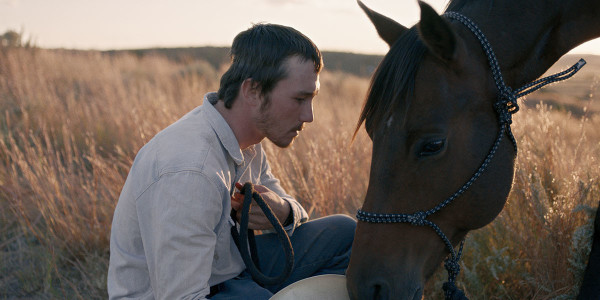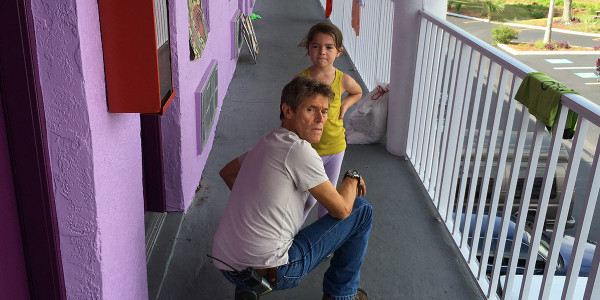
Day 2 of TIFF brings with it new highs and new lows.
Let’s bitch it out…

The Rider
My dislike for Westerns is nearly as great as my dislike for war films, so I was unsure if director Chloé Zhao’s impressionistic drama about rodeo cowboys would be a good fit. It turns out that I should venture out of my comfort zone more frequently because The Rider is exceptional.
Real-life wrangler Brady Jandreau stars as Brady Blackburn, a promising rodeo star who is recovering from a debilitating head injury when the film opens. It quickly becomes clear that Brady’s entire life revolves around horses – not only is he extremely adept at horse-training, Brady is at his happiest when he’s out riding (in glorious long takes that frame the South Dakota vistas in a way that seem signed off by the tourism board). Unfortunately Brady’s physical ailment, which includes seizures that cause him to uncontrollably clench his right fist, prevent him from doing what he loves – at risk of further injury and possibly even death.
In a slice of life of verisimilitude, Brady’s real life father Tim and 15-year-old sister, Lilly are cast in the film, as is former rodeo cowboy Lane Scott, who was paralyzed in real life from a similar injury to Brady’s. In the film, Lane was Brady’s mentor and idol and their scenes evoke a mixture of joy and sadness; they share a warm, playful camaraderie. Still, it’s not hard to equate Lane and his wheelchair as visual symbols of the risks Brady is taking each time he climbs on a horse.
Overall the quality of The Rider‘s acting varies, which is a given for non-professionals taking on dramatic roles. Particularly spotty are the supporting characters, specifically Brady’s entourage of unsympathetic manly men who chastise him for getting a job at a local supermarket, though they are used sparingly. In truth this is Jandreau’s film and he makes Brady’s every stubborn, impulsive and unsafe decision feel earned; after all, how else would a man who is so defined by his profession react upon learning that he’s been reduced to little more than a minor celebrity for kids to gawk at when he emerges in public? It’s heartbreaking…but it makes for a fantastic film.
![]()
Suburbicon
Less successful by far is George Clooney’s stab at repurposing an old Coen brothers story. Working with frequent collaborator Grant Heslov from a Coen screenplayer, Clooney’s directorial choices are on point, but this satirical story is a dud from the opening mock-advertisement for the titular idealist (read: WASPy) community. Things go to shit right off the bat when the all-white community of Suburbicon is infiltrated by its first black family, the Meyers, who immediately draw the ire of the racists who believe that they will ruin the neighbourhood. Of course the joke – and it’s the only one in this slog of a “satire” – is that the real poison eating away at Suburbicon is actually occurring one house away. It’s here where Gardner Lodge (Matt Damon) and his sister-in-law Margaret (Julianne Moore) have plotted the murder of his wife/her twin sister in an insurance scheme they believe will take them to Aruba.
Unfortunately for viewers, the social commentary is so on the nose that nary a laugh can be wrung out of it. The rash of murders (in true Coen fashion, the corpses pile up) happens within spitting distance of a race riot that traps the Meyers family in their home, but – in what someone mistakenly assumes is hilarious black humour – no one ever notices. The fact that a casual glance at the trailers for Suburbicon fail to even hint at the Meyers B-plot should give you an idea of how the final film comes together. The simple fact is that the racially infuriating (but not particularly well-done) parts of the film never come together with the zero calorie Coen brothers-lite crime caper. The fact that the latter is so dull, with flat characters and predictable developments, makes Suburbicon a big miss.
It’s the first truly disastrous screening of the festival, so stay far, far away when it debuts in theatres in late October.

The Florida Project
Writer/director Sean Baker excels are exploring stories that no one else is telling. He did this with his break-out hit Tangerine and he’s done it again with The Florida Project. Here the story concerns young mother Halley (Bria Vinaite) and her precocious daughter Moonee (Brooklynn Prince), living just off the Disneyworld strip at a run-down motel called the Magic Kingdom. Painted a garish bubblegum purple and populated by at-risk families, the motel is run by the uncharacteristically kind Willem Dafoe, who is equal parts protective father and frustrated manager to his tenants.
The Florida Project devotes a substantial part of its runtime to Moonee’s carefree summer existence. For her the Kingdom is home – she knows the good play spots, who to annoy and who to avoid and which local shops can be scammed. By focusing on Moonee for long stretches, Baker highlights the innocent point of view of children, even if we – as adult viewers – understand that her unsupervised play and questionable parental figures are causing her irreparable harm. Much of the film is a series of vignettes without much plot, carried effortlessly by Prince’s youthful enthusiasm (watching children swear is highly enjoyable), though when Halley’s storyline takes center stage, their perilous financial situation on the fringes of society come to light.
There’s nothing particularly surprising about The Florida Project (aside from the fact that thankfully we don’t descend into Requiem for a Dream territory), but the outcome has an air of inevitably that nonetheless feels wretched when it arrives. Baker celebrates the simplicity of pulling off a con and being so flush with cash that you can buy anything you want in a Dollar store; he presents the dissolution of Halley’s sole adult friendship with co-Magic Kingdom habitant Ashley with the same kind of emotional honesty. The characters in Baker’s films feel like real human beings and he capitalizes on this by showcasing the highs and lows of lives lived outside of the conventional scope of Hollywood films.
The Florida Project is exceptional for these (and so many other) reasons. It’s a guarantee to show up in end of year lists and awards chatter, so be sure to seek it out in art cinemas if it plays near you.
—
That’s it for today. Tomorrow brings two directorial debuts: Greta Gerwig’s Lady Bird and Aaron Sorkin’s Molly’s Game, as well as UK ghost film The Lodgers. Plus over at Bloody Disgusting a review of Norway’s official Best Foreign Picture Oscar submission, Thelma.